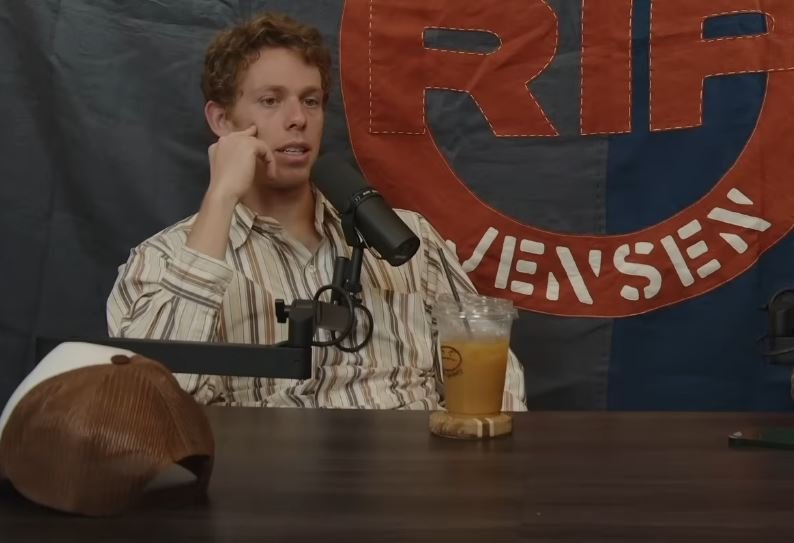
Lately, Lucas Zelnick’s name has been recurrently appearing on college campuses, comedy clubs, and online feeds. Thousands have been won over by his clever, crowd-pleasing content and lightning-fast wit, especially on Instagram and TikTok. One question, though, continues to surface among his expanding fan base: who is Lucas Zelnick’s father?
Beyond his Harvard-smooth delivery and punch-heavy crowd work, Zelnick stands out for his open admission of privilege. He incorporates his comfortable upbringing into the show rather than merely mentioning it. He cracks jokes about trust funds, pricey coffee shops in Brooklyn, and Manhattan prep schools with the kind of sardonic, self-aware humor that resonates because it comes from someone who has experienced it. Fans are left wondering, though, why he hasn’t named his father if he is so open about his wealth.
Lucas Zelnick – Key Facts and Family Background
| Attribute | Details |
|---|---|
| Full Name | Lucas Zelnick |
| Profession | Stand-up Comedian |
| Birthplace | New York City, United States |
| Education | Williams College (BA), Stanford University (MBA) |
| Comedy Style | Observational, self-aware, crowd work |
| Online Presence | TikTok (678K+), Instagram (450K+), YouTube (11K+) |
| Notable Content | Crowd work clips, privilege satire, tour promotions |
| Father’s Identity | Not publicly confirmed; rumored to be high-profile or influential |
| Public Persona | Self-described “rich kid” with elite upbringing |
In recent months, theories have circulated, ranging from highly researched Reddit threads to speculative speculation. Strauss Zelnick, the chairman and CEO of Take-Two Interactive, a significant player in the gaming and media industries, is one name that keeps coming up. The possibility is remarkably similar to those celebrity-family relationships that have been verified elsewhere, such as Dakota Johnson and Melanie Griffith or Zoë Kravitz and Lenny Kravitz, due to their shared last name and New York City origins. Lucas has kept the audience guessing by refusing to confirm or deny, in contrast to those situations.
The choice to conceal his father’s identity appears to be especially deliberate. Zelnick has established a public persona based on on-the-spot humor and authentic stage presence, instead of relying on a family name. He hasn’t risen in the usual nepo-baby fashion, where the parent takes center stage. Rather, he has chosen a low-key, extremely effective approach—letting the jokes speak for themselves.
But the specter of possible influence lingers. It’s simple to think that a father with influence in the media or in business could provide opportunities or resources that others would have to struggle for years to acquire. However, Lucas has skillfully reversed the script, making the assumption into content rather than a crutch, if that were the case. This strategy has been incredibly successful, especially with younger fans who are socially conscious and comedy-savvy.
In an interview with The Williams Record, Zelnick mentioned that he holds a dual degree in English and economics, a combination of academic backgrounds that demonstrates his wit and storytelling skills. That, along with a Stanford MBA, creates a picture of a person who had a wide range of options. Without raising an eyebrow, he could have joined the financial industry or taken over a family business. Rather, he opted for stand-up, consciously exposing himself to hecklers, low lighting, and the unpredictability of open mics. Someone coasting on family influence wouldn’t do that. That’s the attitude of someone who truly enjoys their job and maybe even looks forward to the discomfort it brings.
Similar to Bo Burnham and Hasan Minhaj, comedians have straddled the line between social criticism and introspective humor, drawing on their personal experiences to delve into more general subjects. Zelnick continues that tradition, but from a slightly different perspective—he is grappling with inherited power rather than merely unraveling his identity, and he is doing so in front of a live audience that frequently consists of young professionals who resemble his former classmates.
In a media age where transparency is both questioned and demanded, his decision to embrace privilege rather than hide it is especially novel. While some actors pretend to be humble, others act rebelliously. Zelnick doesn’t. He chooses the more daring path of accepting himself and letting his audience empathize with his candor.
In recent performances, he has made jokes about navigating “leftist guilt” as a wealthy individual surrounded by activists and about becoming more liberal to win over Brooklyn women. These are not merely jokes; rather, they capture a cultural moment in which performative ignorance is no longer accepted and class awareness is becoming more and more expected.
It’s unlikely that fans’ interest in his father will wane anytime soon. However, the true significance of identity may be more important than the identity itself. If Lucas Zelnick’s father has cultural influence, then Zelnick is subtly establishing a new standard in which success is determined by one’s use of the microphone once it is given to them rather than by one’s ancestry.
